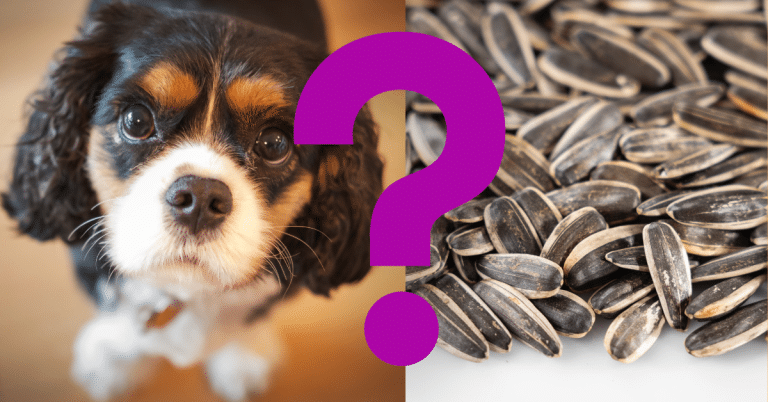Can Dogs Eat Crab Meat? A Vet’s Opinion

Crab meat is a crab’s flesh or edible section commonly utilized as seafood in various culinary recipes. But can you feed crab meat to your dog?
Yes, in moderation, dogs can eat crab meat. It could be a good source of protein and vital elements. However, there are a few key factors to consider. Ensure that the crab meat is adequately cooked and clear of any flavors, spices, or additions that may be toxic to dogs. Remove any shells or cartilage that could cause choking. Furthermore, some dogs may be allergic to shellfish, so introduce crab meat gradually and watch for any adverse reactions.
Benefits Of Crab Meat For Dogs
Crab flesh may provide various possible benefits to dogs when consumed in moderation. Here are some specific advantages:
Protein Source
Crab meat is abundant in high-quality protein necessary for tissue construction and repair, muscle growth, and overall health in dogs.
Omega-3 Fatty Acids
Crab meat provides omega-3 fatty acids, such as EPA and DHA, which help to maintain a healthy coat, skin, and joints. These fatty acids are anti-inflammatory and may help to reduce joint stiffness and improve mobility.
Nutrients
Crab meat contains vitamins and minerals, including vitamin B12, selenium, zinc, and copper. These nutrients are essential for the immune system, fostering healthy metabolism and supporting organ function.
Low-Fat Option
Crab flesh is lower in fat than other protein sources, such as beef or pork. It can help dogs on a low-fat diet or those prone to weight gain or pancreatitis.
Novel Protein Sources
For dogs with food allergies or sensitivities, introducing novel protein sources such as crab meat can assist in varying their diet while reducing the likelihood of adverse reactions.
Despite these advantages, it’s crucial to remember that each dog is unique, and some may have dietary restrictions or allergies. Before integrating crab meat or any new food into your dog’s diet, gradually introduce new foods, watch for any adverse reactions, and contact a veterinarian.

How To Safely Give Crab Meat To Dogs
It is critical to follow a few tips when feeding crab flesh to your dog to ensure their safety and well-being. Here’s how to feed crab meat to dogs safely:
Cooked And Plain
Only give your dog cooked crab meat. Raw crab meat may include pathogenic germs or parasites that cause digestive problems. Spices, salt, butter, and other ingredients that can be hazardous or cause gastrointestinal upset in dogs should not be used to season the crab meat.
Remove The Shells
Remove the shells, cartilage, and complex portions from the crab meat. If your dog ingests these, it could cause a choking hazard or an intestinal blockage.
Feed In Moderation
Crab flesh should be consumed in moderation as an occasional treat or as part of a balanced diet. While it has certain advantages, too much can cause gastric discomfort or an imbalance in your dog’s diet.
Considerations For Allergies
Some dogs may be allergic to shellfish, particularly crab flesh. If your dog has never eaten crab or seafood, start with a tiny amount and watch for any signs of allergic reactions such as itching, swelling, vomiting, or diarrhea. If these symptoms appear, stop feeding crab meat and visit your veterinarian.
Gradually Introduce Crab Meat
When introducing crab meat to your dog, start with a small quantity to test tolerance and reaction. If no adverse effects occur, gradually increase the dose over several days. It aids in the prevention of abrupt stomach discomfort or food allergies.
Veterinary Consultation
Always consult your veterinarian before adding new items to your dog’s diet. They can make personalized recommendations based on your dog’s health issues, nutritional requirements, and allergies.
While crab flesh can be a good source of protein for some dogs, it should not be used in place of a well-balanced diet designed specifically for their nutritional needs. Your dog’s primary source of nutrients should be a portion of complete and balanced dog food. You can safely give crab flesh to your dog as an occasional treat if you follow these rules, taking into account their specific needs and any sensitivities.
Will Crab Meat Make A Dog Sick?
While crab meat is generally healthy for dogs when given in moderation and adequately prepared, some potential issues or concerns are linked with feeding crab meat to dogs. These are some examples:
Allergies and sensitivities: Some dogs may react adversely to seafood, especially crab flesh. Itching, hives, swelling, vomiting, diarrhea, and even trouble breathing are all symptoms of allergic responses. If your dog exhibits any signs of an allergic reaction, stop eating crab flesh and seek veterinary care.
Bacterial Contamination: Raw or undercooked crab flesh may include pathogenic germs like Salmonella or Vibrio. These bacteria can induce digestive problems in dogs, including diarrhea and vomiting. To reduce the possibility of bacterial infection, make sure the crab meat is adequately cooked.
Choking hazard: Crab shells, cartilage, and complex pieces can all constitute a choking hazard to dogs. Remove these before serving crab meat to your dog to avoid choking or intestinal blockages.
High Sodium Content: If the crab meat has been marinated with salt or other high-sodium substances, dogs may consume excessive sodium. High salt levels can harm their health, contributing to dehydration, electrolyte imbalances, and even cardiac problems. It is critical to feed your dog plain, unseasoned crab meat.
Unbalanced Diet: While crab flesh can provide protein and nutrients, it should not be used as a substitute for a comprehensive and balanced dog food diet. Crab flesh may not include all the critical nutrients that dogs require for good health. It should be regarded as a treat or extra protein rather than a staple.
Before introducing new food to your dog’s diet, consult a veterinarian. They can advise based on your dog’s health condition, dietary demands, and the potential hazards of eating crab meat.
Can dogs eat crab meat variations?
Dogs can generally eat crab meat varieties, but evaluating the precise components and preparation methods is vital. Here are a few common crab flesh varieties and their considerations:
Steamed or Boiled Crab flesh: As long as it is adequately cooked, plain steamed or boiled crab flesh with no flavors or additives is acceptable for dogs. Remove any shells, cartilage, or complex components that could cause choking.
Crab Cakes: Crab cakes frequently include extra ingredients such as breadcrumbs, eggs, mayonnaise, and spices. While pure crab flesh in crab cakes is harmless for dogs, the other components may be toxic or cause stomach discomfort. It is advised to avoid providing professionally made crab cakes to dogs.
Crab bisque: Or cream-based soups are generally not advised for dogs. These soups frequently include dairy ingredients, flavors, and thickening agents that might be difficult for dogs to digest or produce inadequate responses.
Crab Stuffed Shells or Pasta Dishes: Pasta, cheese, and seasonings are common ingredients in crab stuffed shells or pasta dishes. Dogs may have trouble digesting or reacting to specific components. It is better to avoid giving crab dishes to dogs that contain pasta, cheese, or seasonings.
Remember your dog’s safety and nutritional needs when researching crab meat alternatives. The safest dog option is plain, unseasoned, and thoroughly cooked crab meat with no added additives or seasonings. Always introduce new foods gradually after consultation with your vet.

Vet’s Summary
In conclusion, dogs can safely take cooked and uncooked crab meat in moderation. It can provide protein, omega-3 fatty acids, and other nutrients. To avoid choking concerns, shells, cartilage, and complex portions must be removed. Because some dogs are allergic to shellfish, it’s crucial to introduce crab meat gradually and watch for any adverse reactions. Furthermore, crab meat varieties such as crab cakes, cream-based soups, or pasta dishes may contain hazardous elements to dogs or cause digestive disorders.
Given the possible digestion benefits, dog owners may want to explore giving their dogs probiotic supplements. Probiotics promote beneficial bacteria, assist digestion, and improve nutrient absorption, all contributing to a healthy gut. They are especially beneficial for dogs with sensitive stomachs, dietary changes, or digestive problems. However, before beginning any new supplements, you must contact a veterinarian, who may recommend the best probiotic strain, dose, and duration depending on your dog’s needs. Probiotic supplements should be considered supplements to your dog’s balanced food and overall health care regimen.
Videos To Watch
If you are wondering what related foods are good to give your dog, watch this:
And if you want to know what a dog can NOT eat, watch this:






